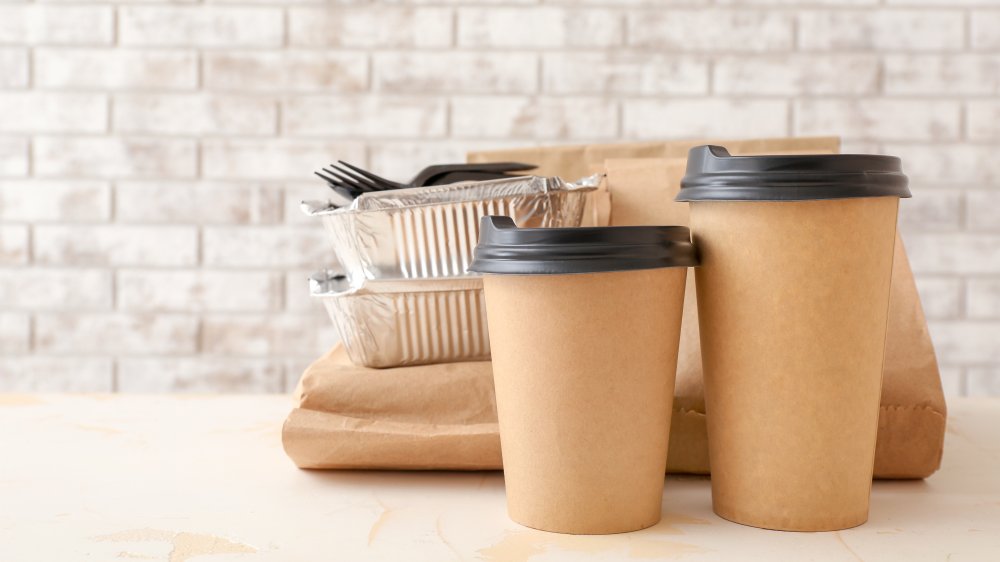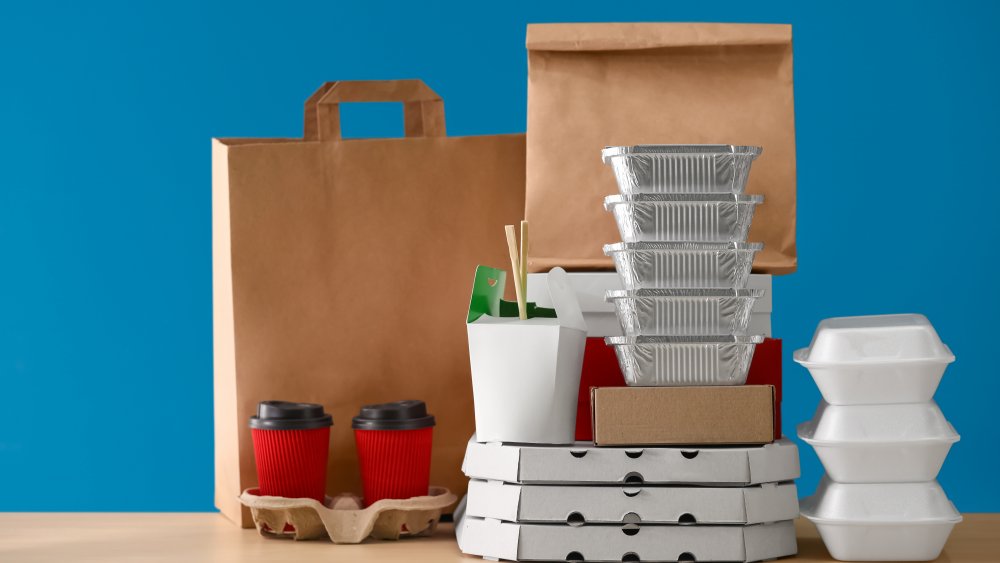You've Been Recycling Takeout Containers Wrong This Whole Time
Growing up in the United States, you hear the phrase "reduce, reuse, recycle" a lot. The EPA states that recycling helps out the environment as it limits the amount of litter and garbage that ends up in landfills and incinerators (among other benefits like saving energy and reducing pollution). According to a Forbes India report, home deliveries have been on the rise lately, and one can assume that means many people are receiving an increased amount of takeout containers. Unfortunately, many of these containers today are made from plastic.
Following the simple philosophy we were taught growing up, many Americans think that these plastics can be recycled. This belief is sadly wrong, as much of the technology at recycling plants cannot process many of the elements in some of the containers used today (via Chowhound). National Geographic states that depending on your city government and local recycling market, some of the plastics you throw into the recycling bin won't get processed.
What can't be recycled and what can
So, what items shouldn't go into your recycling bin? Chowhound states that you should not include things like Styrofoam, plastic bags, black plastic containers, dirty paper plates and napkins, pizza boxes, and Chinese food containers. That's a long list, but why exactly can't they be recycled? Well, as National Geographic reports, not all plastics are created equal. You know that little number at the bottom of your container? That's the Resin Identification Code (RIC) and it tells you everything you need to know about whether it can be recycled or not. The codes run from one to seven, with code one possessing the highest recycling value and code seven being considered a "catch-all category" with a blend of elements.
What types of items can be recycled? Things like plastic clamshell containers, containers and clamshells made from paper or cardboard, aluminum containers, and paper bags, according to Chowhound. Of course, it's wise to always confirm whether your local plant can recycle these items or if your city government has a process in place for recycling.

